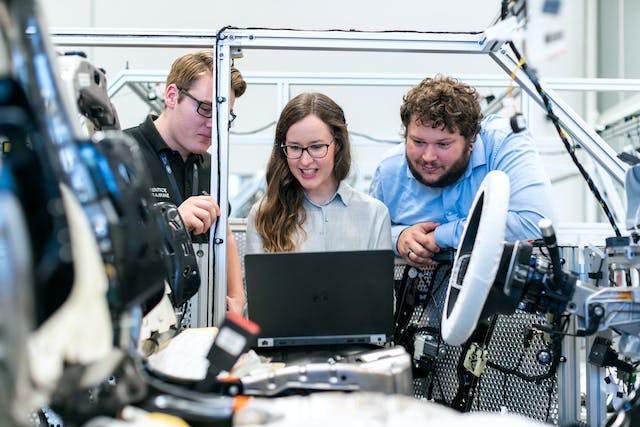Engineering is a field for those who aspire to build a skyscraper, a bridge, or even the vehicle of their dreams. But one of the most attractive branches in the field is Automotive Engineering, which specializes in cars, trucks, motorcycles, and other land vehicles used by man.
What is Automotive Engineering?
Besides its specialties, Automotive Engineering has a lot more intricacies attached to it. Those who are knowledgeable in the said branch will be able to design new vehicles using a special designer program. Other than vehicle design, automotive engineers are also capable of designing the inner workings of a vehicle, such as engines, brake systems, fuel systems, and safety features. Most of these mentioned specializations can be designed using software like Gamma Technologies GT-SUITE and ThinkDesign Engineering. On the other hand, an automotive engineer doesn’t rely on computers every day, as they are skilled in designing automotive parts by only using workshop presses, grinders, and machine tools.
Now, it may look simple based on the description we provided above, but automotive engineering requires rigorous study for it to be perfected. The only way that aspiring engineers or designers will be able to get more knowledge in the field is to enroll for a 4-year degree at an engineering school.
Requirements for Enrolling in an Automotive Engineering School
Almost all engineering schools today would require future students to provide a high school diploma, and most of these schools would also need them to pass an entrance exam. Those who wanted to be automotive engineers should be proficient in math subjects like geometry, calculus, trigonometry, and algebra so that it will be easier for them to understand how to engineer vehicles. In addition, these aspiring students should also be knowledgeable in chemistry for them to know the different compounds or chemicals used for fuel, and also physics, which is important to be familiar with the basic rules of gravity and how vehicles move on Earth.
Students may need to have good written and oral communication skills in order for them to explain their designs or plans better to their coworkers or teammates, although these skills can be developed over time while on the campus. However, those who may want to excel already in their class should attend seminars specializing in the needed skills for automotive engineering. Also, they may study in advanced placement classes that enable students to familiarize themselves with basic engineering.
Degrees in Automotive Engineering
Unfortunately, not all engineering schools offer a bachelor’s degree in automotive engineering, which is why students would take a 4-year course in mechanical engineering first before getting a master’s degree in automotive engineering. Mechanical engineering is a good entry-level course for students who want to be automotive engineers, as the degree teaches them the basics of how engines and fuel systems work, as well as providing them with knowledge on the mechanical pieces that are important for a vehicle to move. In the last year of the course, students will be put on a test to see if they can apply what they learned on specific design projects. Most engineering schools would let you team up with other students, but you have the option of working on your own.
Graduates would then need to work under a licensed engineer, and the number of years that they must be supervised depends on the requirements of the government. After finishing the years of supervision, they would then have to pass an Engineer-In-Training exam, and they must also succeed in passing the Professional Engineers test so that they can be regarded as licensed professional engineers. All of these tasks are needed so that the licensed engineer will plan out and do projects with amazing accuracy or precision.
A master’s degree in automotive engineering is optional, but if you want to know more about designing vehicles and their manufacturing processes, then you may want to enroll for this degree at automotive engineering schools. Graduating with a master’s degree in the branch also gives you an opportunity to teach automotive or mechanical engineering to other students who want to work in the same field as you. If you want to inspire other people to follow their goal in life while teaching them how to reach it, you may want to consider teaching rather than working at a factory.
Where Should You Enroll?
Choosing a legitimate engineering school is fairly simple, as you only have to check if your preferred school is accredited and recognized by the Accreditation Board for Engineering and Technology (ABET). Although most people would say that the school where you graduated wouldn’t really matter once you find a job, some employers would look at your resume and read your educational background immediately.
Fortunately, most companies today would rather look at your grades rather than your school to see if you are studying well enough to be knowledgeable in the field. Furthermore, they would also conduct an exam before you can be hired so that they can test your engineering skills and see if you are up to the job.
These are some of the basic aspects of automotive engineering that you need to know before taking on the path towards becoming a licensed engineer at an automotive company. The road may seem daunting, but if you can overcome any obstacles that will appear in front of you, the end of the path will surely be worth it.

